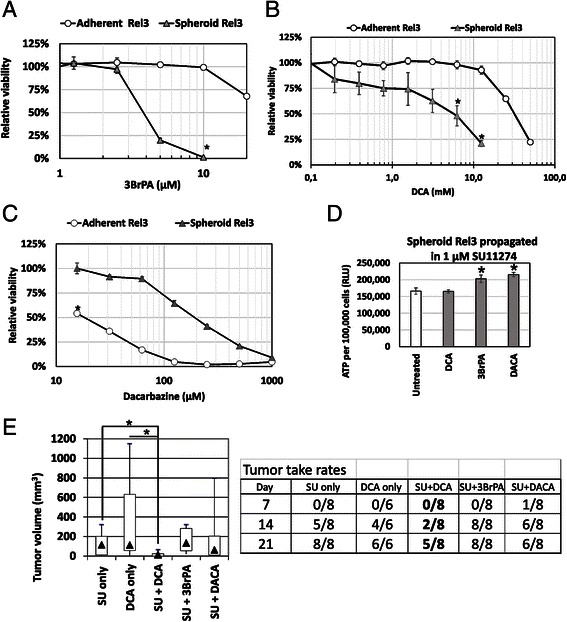Fig. 6.

SU11274-mediated increase of tumor initiation can be reverted by bioenergetics odulation ith dichloroacetate. a–c Sensitivity to glycolytic modulators 3-BrPA, DCA and dacarbazine in adherent and spheroid cultures was compared. Spheroid Rel3 are significantly more sensitive to 3BrPA and DCA, significantly more resistant to dacarbazine. Relative viability was determined by luminescent ATP-based assay. Values were calculated from quadruplicates as means + SD, *p < 0.05. d–e Rel3 cells were treated with SU11274 in spheroid conditions for 7 days. Following drugs were added for 24 h on day 4 after treatment start: 5 mM DCA, 3.5 μM 3BrPA or 100 μM dacarbazine (DACA). Cells were let to recover for next 48 h in the presence of inhibitor SU11274 only. Spheroids were trypsinized, viable cell counts determined, ATP per cell determined by bioluminescent assay. Then, 1 × 104 cells were mixed with the ECM Gel diluted in serum-free medium and injected s.c. DCA did not change SU11274-mediated increase of the ATP-level per cell, 3BrPA and dacarbazine further increased the ATP level. DCA treatment alone in Rel3 cells did not significantly affect tumor growth or initiation. DCA treatment delayed the tumor onset in SU11274 treated cells and significantly inhibited tumor growth as determined by day 21, *p < 0.05
